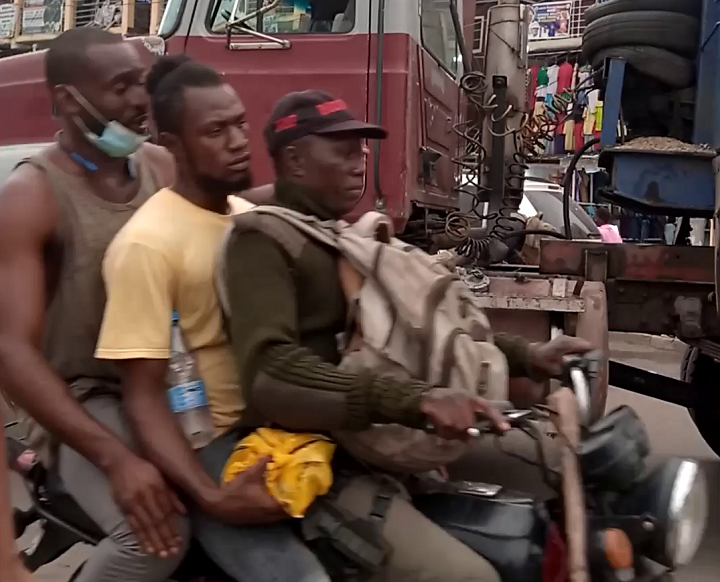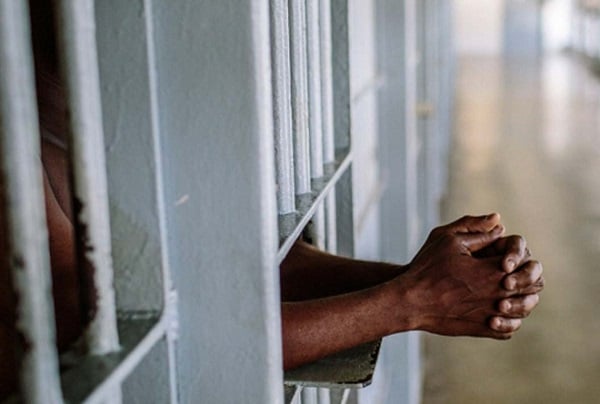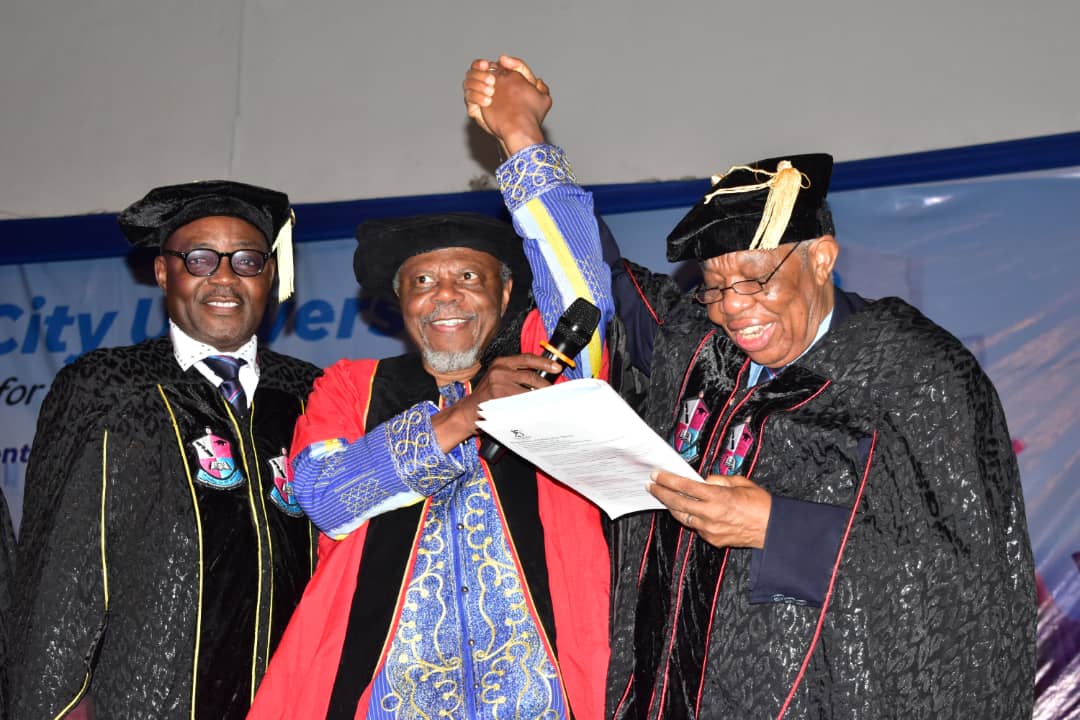A police officer operating Okada in Oshodi/Isolo LGA despite ban
The ban on commercial motorcycle taxis, known as okada, in 10 LGAs in Lagos was meant to restore sanity, reduce crimes, injuries and deaths on major roads in the state. But the policy has also provided an opportunity for security operatives to make quick money. TheCable’s JAMES OJO went undercover to unveil how law enforcement officers are violating the law and fleecing commuters in the state.
“Iyana-Ipaja, Tollgate, Ikeja-Along, Agege…” Officer Clement, as he is simply known, hailed passengers by the road along the Oshodi bus terminal in Oshodi-Isolo LGA of Lagos state.
Wearing a police cap and vest on top of blue jeans, the motorcyclist stood in line with other bike riders who also donned police outfits.
The time was 5:50 pm on October 14, and the Oshodi bus terminal bustling with activities. This reporter joined other commuters jostling for transport to go home after a hectic day.
Advertisement
The evening rush hour was in high gear and traffic was already building up on the highways. Some commuters wore a tiring look; many hissed intermittently at the thought of having to spend hours in the growing traffic.
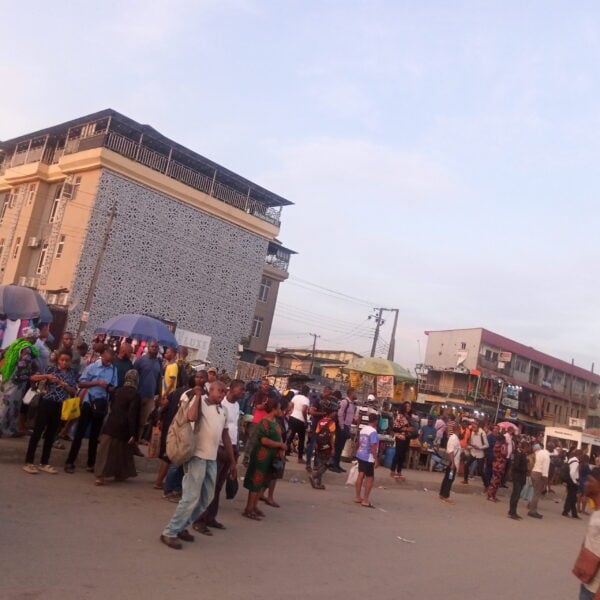
For Officer Clement and his colleagues, it was an opportunity to make a quick buck. “Ikeja-along, you dey go?” the reporter asked in Pidgin. “Yes, your money na N500,” he replied, ruling out further negotiation.
After getting another passenger willing to pay N500, he zoomed off. The reporter’s mind was restless with thoughts of being stopped by security operatives along the route and spending a night in police custody. Oshodi to Ikeja-Along is just four kilometres long. But with the gridlock, the trip took longer time.
Advertisement
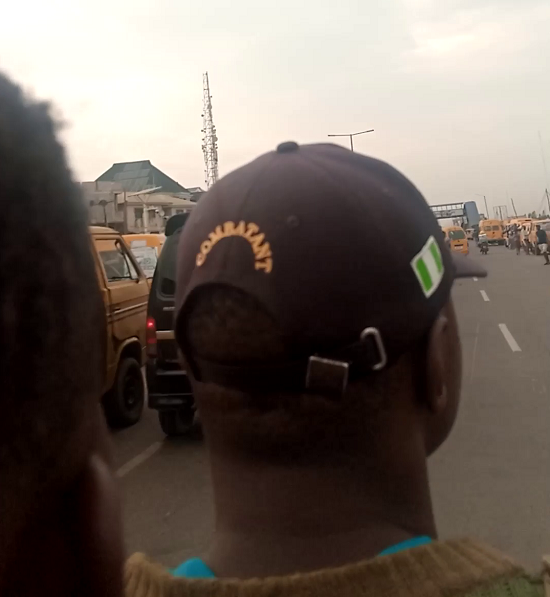
Oshodi-Isolo and Ikeja are among the 10 LGAs where okada is “totally banned” in Lagos. Others are Surulere, Eti Osa, Lagos Mainland, Lagos Island, Apapa, Kosofe, Shomolu, and Mushin.
In May, Babajide Sanwo-Olu, the state governor, while announcing the ban, said: “As from June 1, we want all commercial motorcycles completely off all major roads.”
The state also warned that both passengers and riders violating the ban risk three years in jail if arrested. Frederic Oladeinde, the commissioner for transport, said the bike would be confiscated.
Gbenga Omotoso, the state commissioner for information and strategy, also said the ban became necessary owing to worrying statistics of okada-related accidents and the security threats it posed.
Advertisement
Okada, according to him, is unbefitting of a “megacity” like Lagos.
“Our doctors are complaining that more and more people are coming with okada-related emergencies. About 1,712 accidents have been recorded in Lagos in the first quarter of this year. Out of this figure, about 45 percent, to be precise 767 of the accidents, were caused by okada. And it is shocking to know that about 54 percent of the victims are between the ages of 30 and 39. These are our able-bodied young people who are getting cut down like that all because they mounted okada,” Omotosho said.
“There is a law that lists all the routes commercial motorcycles are restricted from plying. The law is still there; it has not been repealed. So, the enforcement is not new and it is going to continue as the June 1st deadline stands. The goal is to have a Lagos without motorcycles because there is no megacity in the world where you go to and find this kind of mode of transportation.”
This is the background to the reporter’s apprehension. A few minutes after the journey commenced, however, the reporter realised that his fear was exaggerated. With his police vest and cap, Officer Clement indeed was immune from arrest.
Advertisement
Officers of the Lagos State Traffic Management Authority (LASTMA) and the Nigerian Mobile Police (MOPOL) force on the route did not bother to stop him though he violated several state traffic laws, which include driving against traffic, and moving on the Bus Rapid Transit (BRT) Lite corridor.
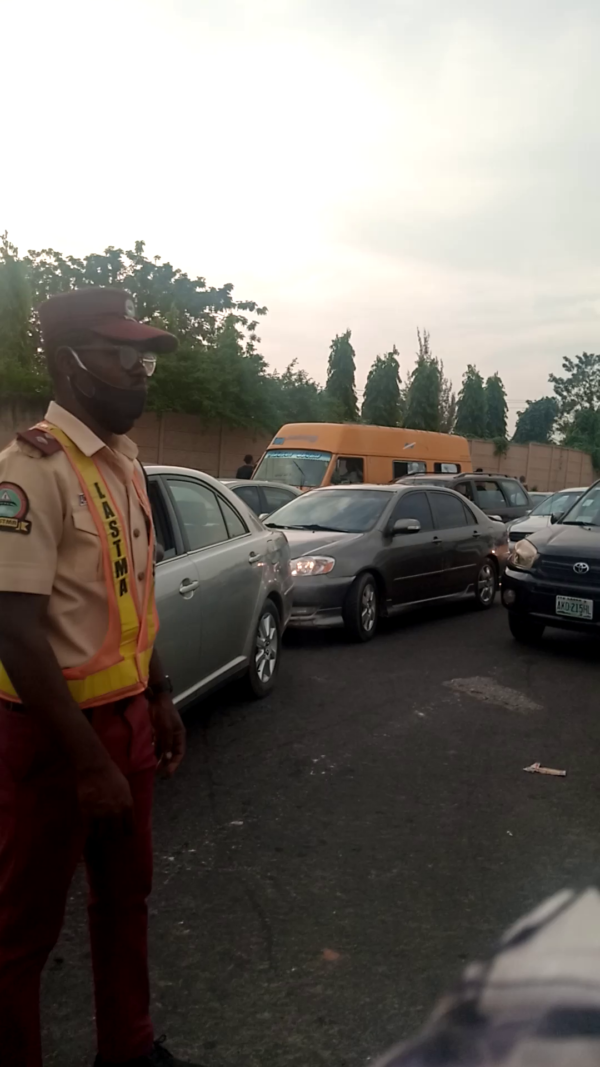
Officer Clement was not the only one. Other uniformed men operate freely on the highways despite the ban on okada.
Advertisement
DOUBLE STANDARD
Okada is one of the means of transportation in rural areas and cities in Nigeria owing to its door-to-door service and ease of navigating gridlocks. There are over 20 million okada riders in Nigeria, although only 14 million of them are registered, according to the National Commercial Motorcycle and Tricycle Owners and Riders Association of Nigeria (NATOMORAS).
Advertisement
With an estimated population of over 20 million people, ease of transportation in Lagos is a major issue for residents and the government. To avoid being trapped in gridlock – which is frequent on major roads in the state — many rely on okada.
The state has arrested several people violating the ban, seized numerous motorcycles, and crushed many of them. In August, the transport commissioner said after the ban on Okada, crime and accident rates reduced by 86 percent and 63.7 percent respectively in the state, adding that 7,500 motorcycles have been impounded and crushed.
Advertisement
But while the clampdown on people violating the directive continues, security operatives operating okada business are rarely brought to book.
Visits to Kosofe, Surulere, Apapa, Ikeja and Oshodi-Isolo LGAs showed that being a security operative guarantees immunity from arrest and prosecution.
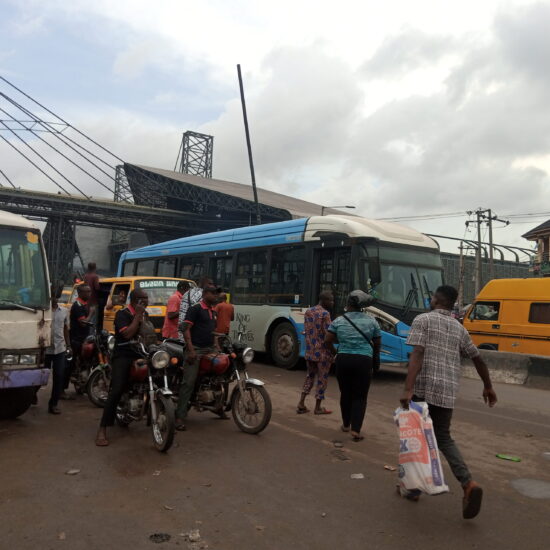
During the reporter’s trip with Officer Clement, he went past a vehicle belonging to the Kick Against Indiscipline (KAI) and LASTMA, also using the BRT corridor. Other officers who conveyed the reporter on the restricted routes hurled insults at those who refused to give way.
“Nobody can arrest us. Those enforcing the ban are officers like us,” Mathias Joseph, another police officer operating along the Oshodi-Ikeja-Iyana-Ipaja axis boasts when the reporter raised concern about possible arrest.
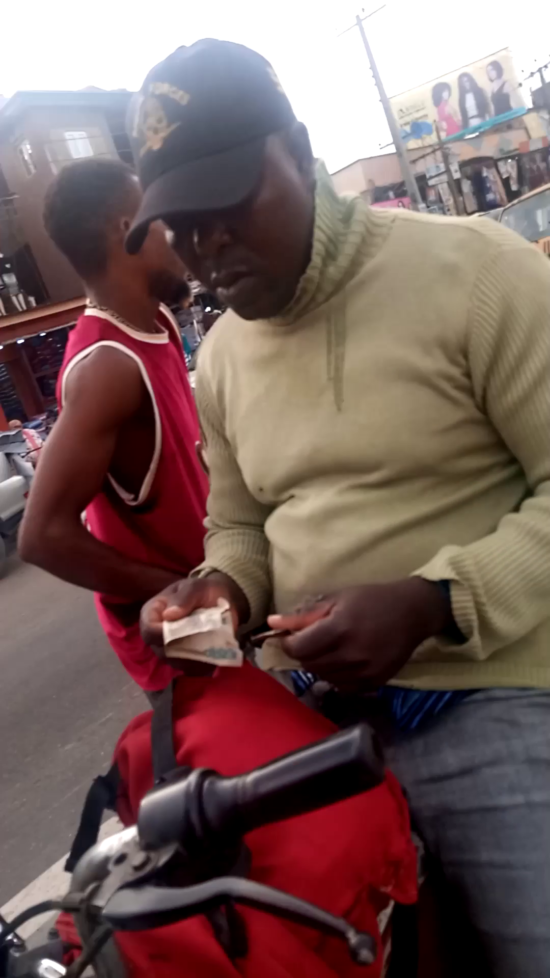
According to the Lagos state traffic laws, driving on BRT corridor attracts a fine of N20,000 for a first-time offender or six-month imprisonment or one-year community service in addition to compulsory training by the Lagos State Drivers’ Institute (LASDRI).
Riding a motorcycle against traffic or on the kerb also comes with a penalty of N50,000 or three-month imprisonment or six-month community service. Illegal U-turns, carrying more than one passenger (with a penalty for both rider and passenger), and riding a motorcycle without a crash helmet for riders also come with various fines.
But some security officials openly violate these laws, putting the lives of their passengers and other road users at risk. During the trip with Clement, for instance, the reporter and his co-passenger narrowly avoided a head-on collision with a BRT bus, yet the officer seemed unperturbed.
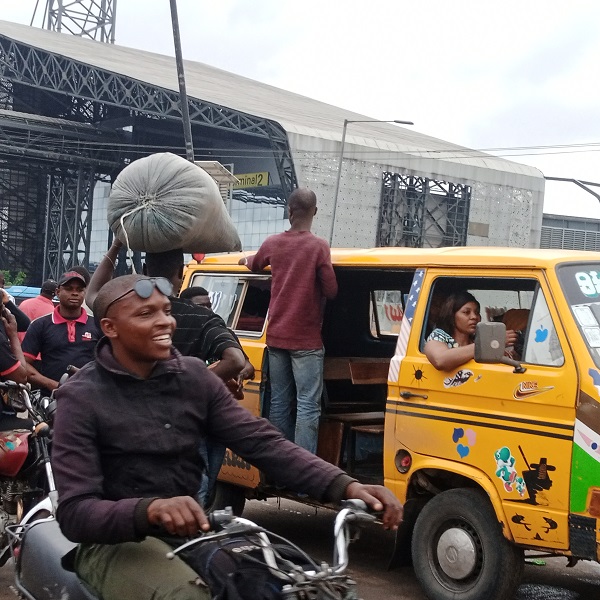
At Computer Village, in Ikeja LGA, the reporter’s experience with Officer Ali was not different. The energetic officer exuded confidence when the reporter told him he was going to the Lagos high court located on Oba Akinjobi Street, Ikeja GRA, about a 12-minute drive from Computer Village.
To convey the reporter to his designation, Ali would have to pass a checkpoint (manned by police and LASTMA officials), the Lagos State University Teaching Hospital (LASUTH), Area F police command headquarters, as well as the Nigerian Police Training School.
True to his words, no one stopped him till the reporter alighted. “Na we get area, anything wey wan happen, na we dey here,” he said in Pidgin.
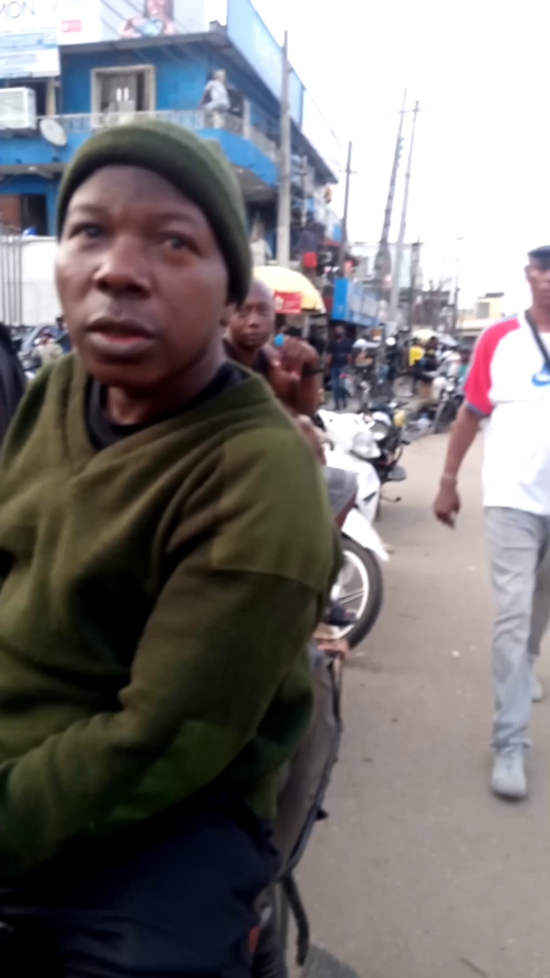
On another occasion, a police officer conveying the reporter through a one-way route ran into a police team at Grammar School in Ojodu axis of Ikeja, but all he needed to pass the roadblock was his identity card.
EXTORTION, HIKED FARES… OKADA BAN CREATES GOLDMINE FOR OFFICERS
Many residents prefer to patronise security officers operating commercial motorcycles owing to their perceived immunity from arrest or harassment. Being conveyed by security operatives is seen as protection against violating traffic laws.
For this protection, the officers often hike transport fares to make more money. On October 18, this reporter paid only N150 from Ikeja-Along bus stop to Oshodi bus terminal, using a yellow bus. But when he opted for bikes operated by the officers, the price was in the range of N500 to N1,000 for a trip that normally costs between N250 and N350.

When the reporter offered to pay a lesser fare, some of the officers turned him down.
“I charge N1,000 whether you’re going to Iyana-Ipaja or Ikeja-Along,” an army officer fired back at the reporter who had pleaded with him to take N500. Some army and police officers charge as high as N2,000 to N3,000 from Oshodi bus terminal to Iyana-Ipaja and Toll Gate in Sango Ota, Ogun state.
At Apapa and other LGAs visited, the story is the same. Commuters who cannot endure the heavy gridlock or need to catch up with an appointment, are forced to pay outrageous fares.
“This is how we are managing ourselves for now,” a police officer who operates okada around the Lagos port complex in Apapa LGA, told TheCable.
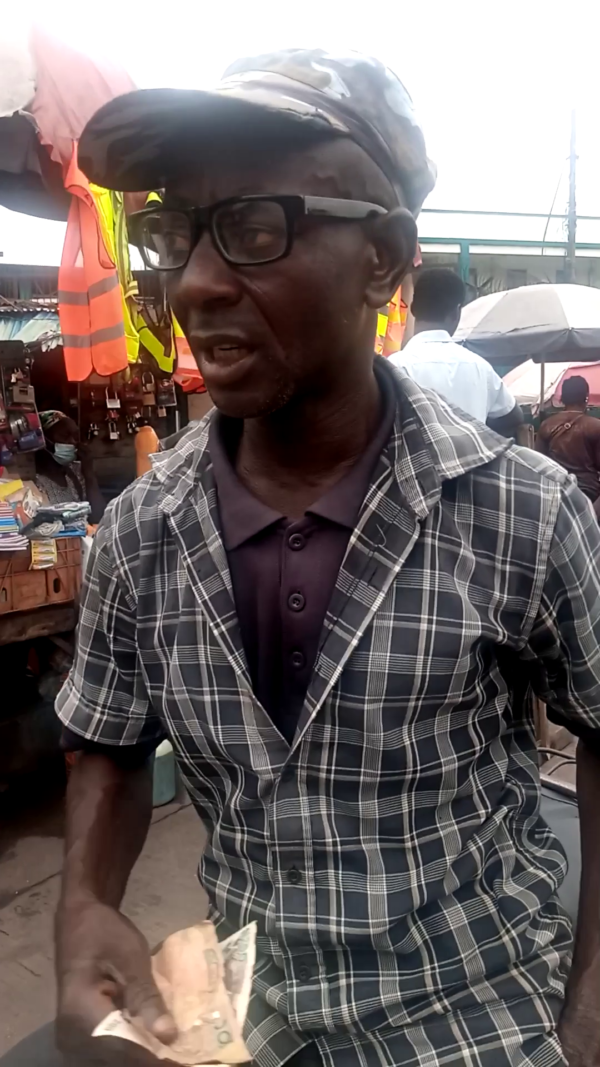
CIVILIANS AS SOFT TARGETS
On the other hand, civilian commercial motorcyclists have accused police officers of charging exorbitant fees before they release their bikes after arrest, while they turn a blind eye to their colleagues who flout the law.
Ajibade Henry is one of the civilian commercial motorcyclists in Apapa LGA, despite the okada ban in the area. Henry operates in Coconut Bus-stop, Ajegunle, and other parts of Apapa. He told TheCable that police officers often extort him and other operators in the area.
“I paid N5,000 to get my bike back when it was seized. I know someone that paid as high as N30,000. They (police operatives) mostly operate in the evening.
Yet he is not ready to stop riding okada on illegal routes.
“It’s difficult to stop doing this business because there are no jobs out there. How will my family and I survive if I stop?”
In Ojota, Kosofe LGA, the ban on okada recorded significant success at the initial stage. But like in other LGAs visited, the activities of security officers flouting the ban have become an encouragement to some commercial motorcyclists who obeyed the other in the beginning. They have now returned to the road.
“I have been doing this okada business in Lagos for years. The latest ban really affected people like me. I stopped for a while but seeing some officers doing it, I am thinking of going back. If the officers are doing it, they should not stop us,” an okada rider in Ojota, who simply identified himself as George, said.
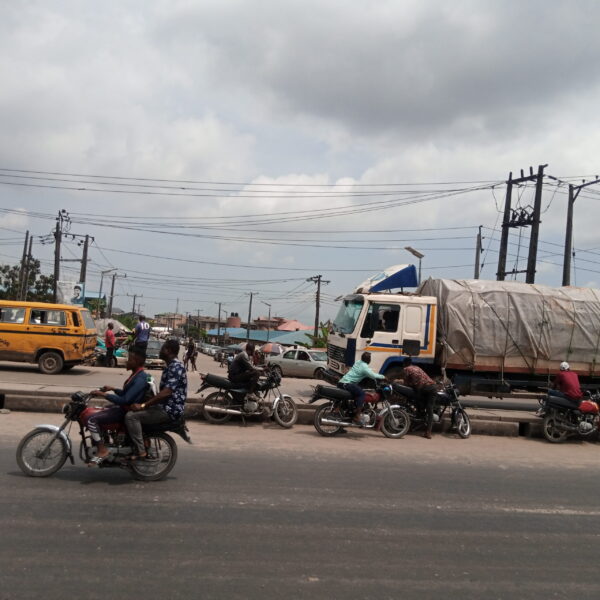
Mohammed, a motorcyclist, operates around Mile 2 in Amuwo-Odofin LGA. This reporter met him after a tiring journey from Ojodu-Berger in Ikeja to Mile 2. The reporter needed a bike to connect to Apapa.
Three of the commercial motorcyclists at Mile 2 refused to convey the reporter, citing the ban. But Mohammed was an exception. He knew the tricks of the road and had seen several police officers violating the ban.
“Them (referring to security operatives enforcing the ban) no go catch (arrest) us?” the reporter said in Pidgin.
“Don’t worry; you’re safe. We’ll pass through some inner roads which connect to Coconut bus stop. From there, it’s easier to access anywhere in Apapa.”
Chiamaka Emmanuel, a resident of Sanya in Coker/Aguda LCDA of Surulere LGA, said the ban on okada has not been effective in the area because officers tasked with enforcing the directive are not efficient.
“The ban on okada has not been effective in Surulere. I still see motorcycles around here, especially in the morning and evening. They basically come out when people are going to work and coming back. Somehow, I am happy that they have not totally left because if they had, it’s going to be a serious problem. There is an issue with transportation,” she said.
“Sometimes, it’s so hard to get a bus, and at times, the bus drivers will hike their prices. Some people don’t have the patience of waiting for a bus, so they just board a bike.
“Also, the security operatives around are not really carrying out their duty. What some of them do is that when they see these okada riders, they will just collect money from them and leave them to continue their journey. I have used okada very well after the ban. I see them in areas like Aguda, Bode Thomas, Cele, among others.”

CAN LAGOS TOTALLY GET RID OF OKADA?
This is not the first time a governor has placed a partial or full ban on okada in Lagos. Sanwo-Olu’s latest directive makes it the fifth time okada is getting outlawed in the state.
In 2007, Bola Tinubu, a former governor, banned commercial motorcycles in the state. Babatunde Fashola, his successor, announced a similar directive in 2012, while Akinwumi Ambode, the next governor, also prohibited commercial motorcycles in several parts of the state. But none of the directives has stopped the okada ride in the state.
While announcing the latest ban in September, the state government said it had provided “viable” means of transportation for residents of the affected LGAs.
“As a responsive government, we are not leaving the affected passengers who patronise okada stranded without any viable transport alternative and we have 200 more first and last-mile buses being deployed to the affected areas,” the transportation commissioner had said.
“We have wrapped up the BRT buses in those areas. We also have the LAGRIDE ( referring to Lagos e-hailing taxi scheme) which is operating in those areas and we have other viable transport options which people can use in the absence of okada.”
Despite the efforts, okada riders remain a permanent presence on Lagos highways.
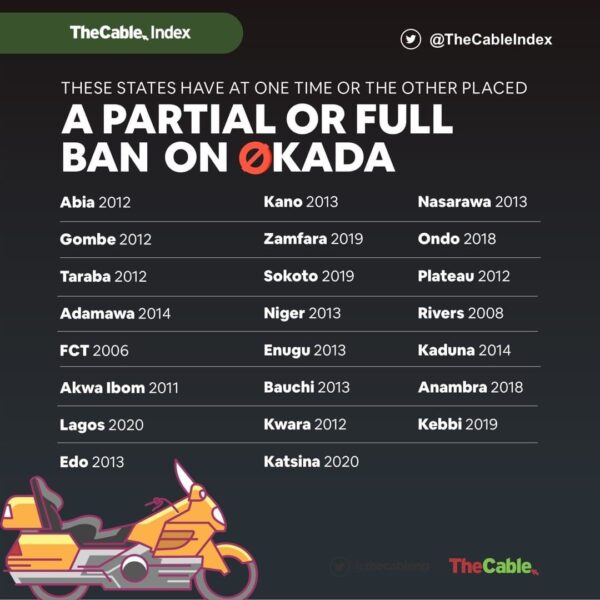
ARMY, POLICE REACT
When contacted, Olaniyi Osoba, spokesperson for the 81 division of the Nigerian army — which is in charge of Lagos and Ogun states — said any of its personnel caught violating the ban on okada would be arrested and handed over to the state government for prosecution.
“The law banning commercial motorcycles is for everybody, and the Nigerian police are enforcing it. So far, they have been doing that to a great extent. For the military, any personnel that violates that law will be arrested. Once we arrest such personnel, we seize the bike and subsequently hand over the person to the state government,” Osoba told TheCable.
Benjamin Hundeyin, the Lagos police spokesperson, also said erring officers riding okada for commercial purposes in the state would “face the music”.
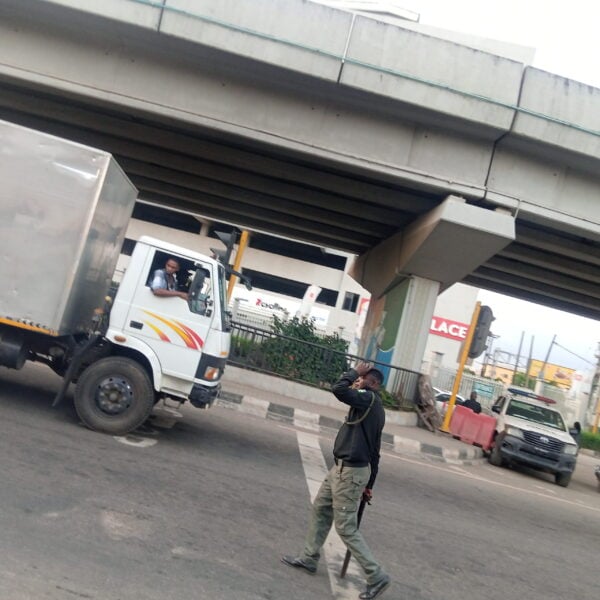
“You mean police officers using okada for commercial purposes? That is new to me. I am yet to get any information on that. I am hearing that from you for the first time. Nonetheless, we have our own rules. Any officer apprehended doing such would face the music. We have given the warning at the beginning of the ban on motorcycles that no policeman should use it for commercial purposes, and that is still in effect,” Hundeyin told TheCable.
LAGOS GOVERNMENT KEEPS MUM
Efforts to get the response of the Lagos state government proved abortive. The reporter called Gbenga Omotoso, the state commissioner for information and strategy, on several occasions but he did not pick up. He also did not respond to a text message seeking his reaction to the findings by the reporter.
Gboyega Akosile, chief press secretary to the state governor, also did not respond to calls and text messages sent to him.
Here are more photos of security officials violating the ban on okada:

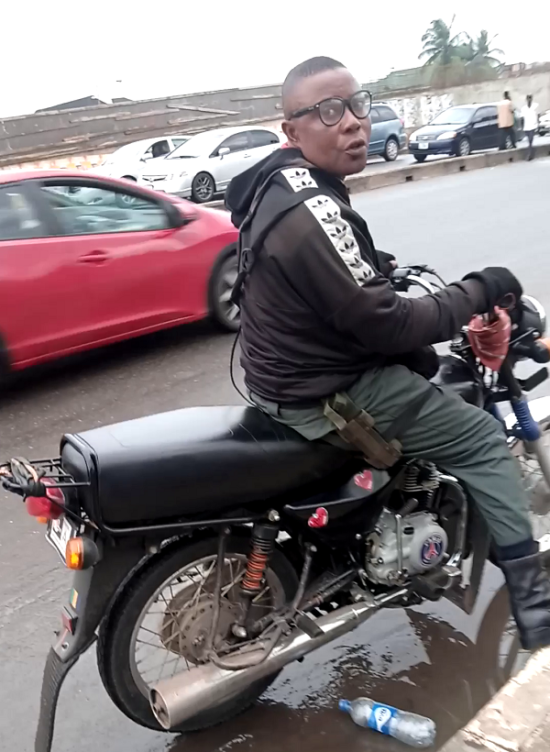


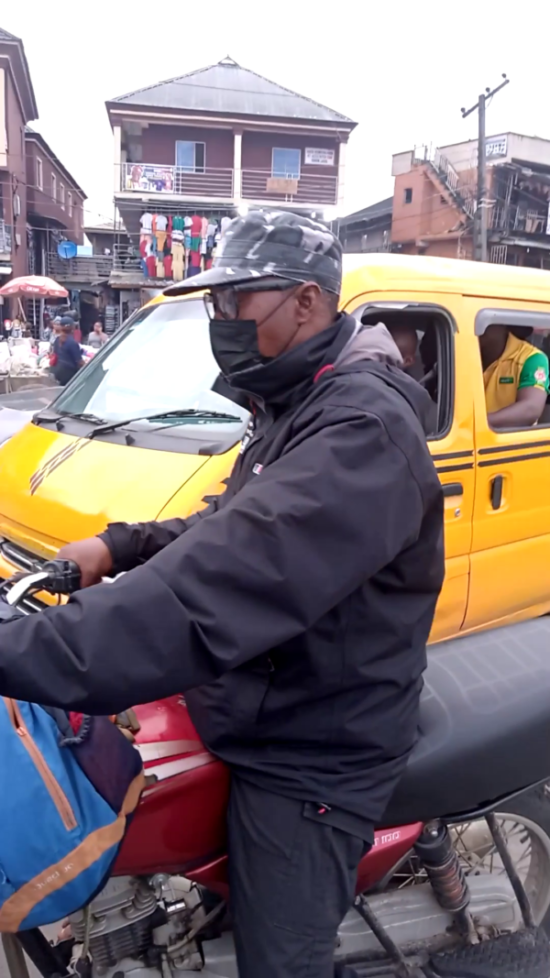
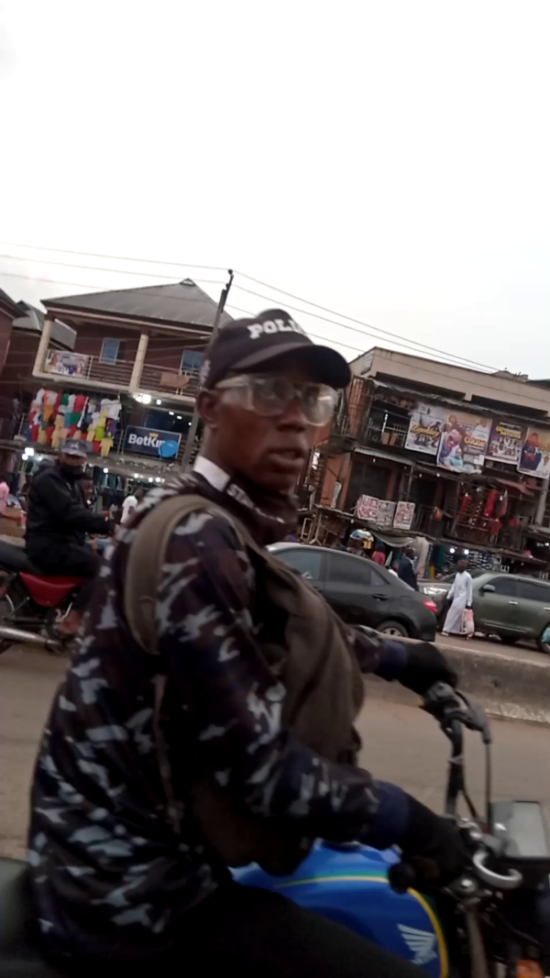
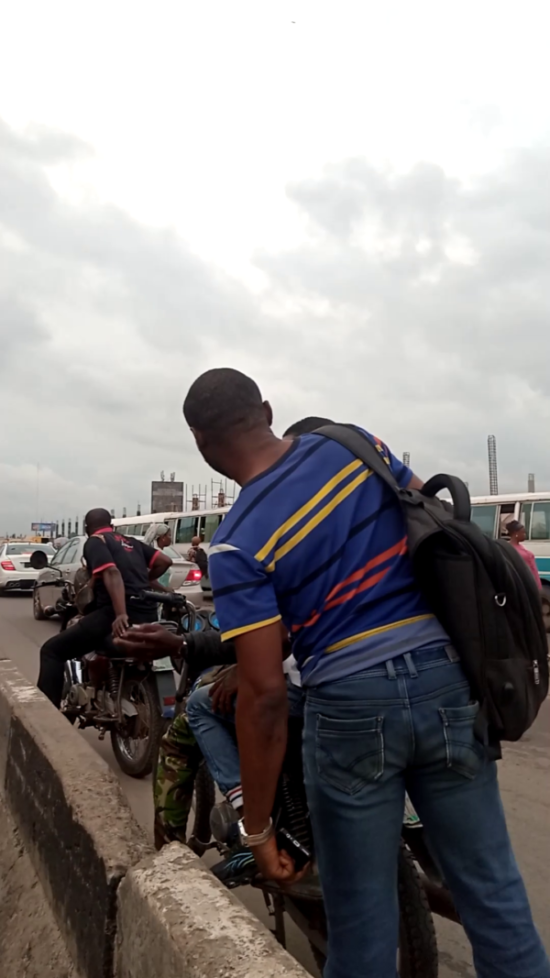
This report was facilitated by the Wole Soyinka Centre for Investigative Journalism (WSCIJ) under its Collaborative Media Engagement for Development, Inclusion and Accountability (CMEDIA) project.
Add a comment
